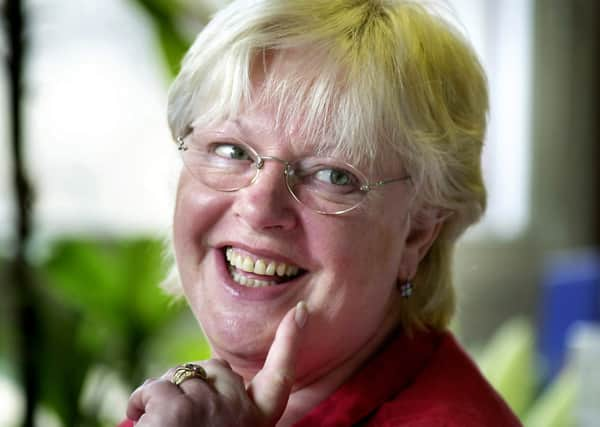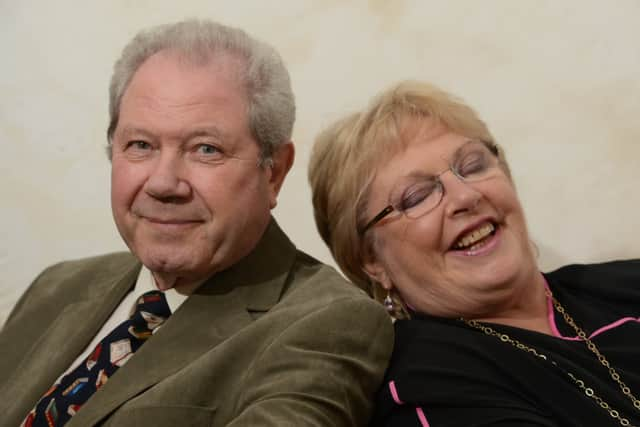Margo MacDonald (1943 '“ 2014) '“ Pioneering Politician


In Scotland's complex list system, when a regional MSP dies, their seat is taken by the next ranked member on their party's list.
Margo MacDonald, as an independent list MSP, had no-one to replace her when she passed away in 2014, leaving the parliament one member short for two years.
Advertisement
Hide AdAdvertisement
Hide AdSomehow, though, this felt fitting. Reflecting on a political career that had spanned four decades, it was hard not to conclude that Margo MacDonald was truly irreplaceable.


Afforded the rare honour of being a politician instantly recognisable just from their first name, “Margo”, fiercely independent and a fierce debater, has indeed left a hole in Scottish politics.
Margo Aitken was born in Hamilton and trained as a teacher before marrying her first husband Peter MacDonald – they had two daughters, Petra (who is married to Proclaimers star Craig Reid) and Zoe (who is a well-regarded BBC camerawoman).
MacDonald, interested in left-wing and pro-independence causes, stood for the SNP in the Govan by-election in 1973.
In a stunning upset victory, MacDonald won what was then only the third seat in the SNP's history, beating Labour candidate Harry Selby by just under 600 votes.


Selby won the seat back mere months later, but the election was seen as a watershed moment for the still-young independence movement, and MacDonald was a forceful advocate for it even outwith parliament.
MacDonald was among members of the left-wing protest movement the 79 Group, advocates within the SNP who wanted the party to go leftward to gain support in Scotland.
MacDonald was among the members of that group who left the SNP (some voluntarily, some not) and was a contemporary of Alex Salmond as they both found themselves outwith the party.
Advertisement
Hide AdAdvertisement
Hide AdAfter working as a writer and broadcaster, MacDonald returned to the SNP and frontline politics when she was elected as a list member for the Lothians in the first Scottish parliamentary elections in 1999.
She had returned to the party around the time that her second husband Jim Sillars had won her old seat in the Govan by-election of 1988.
Her fiercely independent streak in the new political landscape of Holyrood won her many plaudits, but jeopardised an already frosty relationship with the SNP under Alex Salmond and later John Swinney.
After being ranked on the internal list so low as to make re-election impossible, Margo MacDonald ploughed her own furrow, seeking and winning election on the party list system, to date the only independent to do so.
Unshackled by the restraints of a party system, MacDonald remained outspoken for the rest of her life, as she revelled in her status as an independent, winning re-election in 2007 and 2011, even as the SNP became the dominant political force in Scotland.
After her battle with Parkinsons Disease became public, Macdonald sought to legalise Assisted Suicide in Scotland, but ultimately fell short in that effort.
While the physical toll the disease wrought on her was more visible, MacDonald still had a say in the independence referendum, a roadshow carried out in her name by her family and activists, offering the first taste of politics to a young (well, even younger) Mhairi Black.
Given Black too shocked the world in a similar manner to her hero, perhaps it is her who best sums up the legacy of Margo MacDonald.
She said: “Margo was in politics for the right reasons, She was someone who was genuinely honest and genuinely cared about people.”
You would struggle to find someone who disagreed with that.